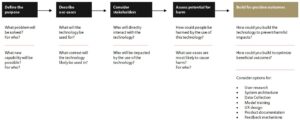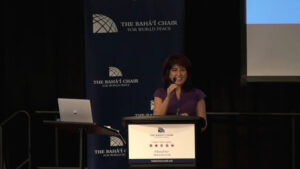The Passion for Gambling, print, Claude Gillot, engraved by Jacques Gabriel Huquier
Remember when we were kids? Adults would ask us what we wanted to be when we grew up, and we’d say things like “cure cancer” or “save the rainforest.”
Fast forward to today, and what are many of our brightest minds doing? Optimizing ad click-through rates. Writing algorithms to keep you scrolling. Designing features to make apps more addictive.
How did we get here?
Welcome to what I call “Jackpot Economics”? -a system where our most talented people are pushed into chasing quick wins instead of solving real problems. It’s not just about individual choices; it’s about how our entire economic system is designed to work like a casino.
Understanding The Casino Economy
Think about how a casino works. It’s not just about games of chance? -it’s carefully engineered to keep you playing. Those occasional small wins, the near-misses, the visible jackpots, the free drinks? -everything is designed to keep you engaged despite knowing the house always wins.
Now look at our modern economy:
– Venture capital sells the unicorn dream while most startups fail
– Dating apps profit more from keeping you single than finding your match
– Corporate innovation programs run endless pilots that go nowhere
– Wall Street pushes complex trading products while most traders lose money
– The “American Dream” itself has become a lottery ticket
The house (platforms, VCs, corporations) always wins, while individuals keep playing despite the odds.
The Modern Talent Trap
Here’s where it gets painful. I’ve watched brilliant people? -PhDs, engineers, data scientists? -apply their talents to what? Finding better ways to sell you stuff you don’t need. Creating more engaging notifications. Optimizing the dopamine hit of social media likes.
Why? Because our system presents a brutal choice:
– Take the high-paying tech job optimizing ads
– Pursue meaningful work but struggle financially
With student debt, housing costs, and healthcare tied to employment, “selling out” isn’t really a choice -it’s a necessity for middle-class survival.
This isn’t just about individual career choices. We’re facing massive challenges as a society? -climate change, public health, social infrastructure? -that require patient capital and long-term thinking. Instead, our best minds are diverted to increasing “engagement metrics.” Corporations don’t truly innovate because they need a fast return on investment that ideally drives their stock price up. The transformative potential of powerful technologies like AI are aimed at ad optimization instead of discovering medical breakthroughs or meaningful solutions to climate change.
The moral injury is real. We tell our children to “be the change they want to see in the world,” then create an economic system where meaningful work can’t pay the bills.
It doesn’t have to be this way. Look at institutions like Stanford. They operate on long time horizons. Stanford’s Office of Technology Licensing generates billions through strategic licensing of their breakthrough research. They prove that different governance structures can enable both innovation and long-term thinking. We need to imagine new organizational structures and governance models that provide the timelines and patient capital so we can remake our societies and economies so they work for us.
So how do we change?
Think of government as the system administrator for our economic game. Right now, the rules reward short-term thinking and jackpot-seeking behavior. We need to rewrite those rules to:
– Reward patient capital through tax structures
– Create protected spaces for long-term work
– Decouple basic security (healthcare, housing) from employment
– Enable sustainable career paths in meaningful work
Until those systemic changes happen, we’re stuck in a painful reality where our brightest minds are diverted from solving real problems to chasing engagement metrics. The first step to changing this is recognizing the system for what it is? -a carefully engineered casino economy that profits from perpetual seeking rather than meaningful success.
We need to start asking: What problems could we solve if we redirected all this human potential toward actual challenges instead of optimizing the next dopamine hit?
The cost of Jackpot Economics isn’t just wasted resources? -it’s the collective moral injury of a generation raised to change the world, then forced to optimize ad clicks instead.
The Way Forward
Perhaps the most unsettling aspect of Jackpot Economics isn’t that it exists, but how it shapes the aspirations and behaviors of some of our most capable people. When brilliant minds spend their days optimizing ad clicks or chasing viral moments, we have to ask: What’s driving this behavior? Why do these systems hold such power over us?
The answer lies not just in economics, but in the sophisticated psychological architecture that keeps us playing the game, even when we suspect the odds are stacked against us. In my next piece, I’ll explore the behavioral mechanics that make Jackpot Economics so compelling -and so hard to resist.
— –
Readings:
- “The Age of Surveillance Capitalism” by Shoshana Zuboff (2019) – Harvard University Press? -how tech companies optimize for engagement and behavioral manipulation
- Adams, Sarah. “From Promise to Profits: The Conversion of Social Value into Financial Capital in the Impact Investment Industry” (American Sociological Review, 2021) Examines how the pursuit of quick returns affects social impact initiatives
- Stanford Technology Licensing Office Annual Report (2023) Provides data on successful long-term research commercialization
- “The Exponential Age: How Accelerating Technology is Transforming Business, Politics and Society” by Azeem Azhar (2021) Discusses the systemic pressures pushing talent toward short-term optimization
- Brooks, David et al. “Brain Drain or Brain Bank? The Impact of Skilled Migration on Poor-Country Innovation” (Journal of Urban Economics, 2023) Research on talent allocation and societal impact
- The Project on Student Debt Annual Report (2023) Provides data on how student loan debt influences career choices
- World Economic Forum’s “Future of Jobs Report 2023” Shows the distribution of talent across industries and the prioritization of certain skills
- “The Good Jobs Strategy” by Zeynep Ton (MIT Press, 2020) Examines alternative business models that balance profit with meaningful work
- “Day trading statistics: what is the success rate?”(Unbiased, 2024) Uncover the realities of day trading by exploring crucial research and data that reveal its challenges and opportunities.
—





